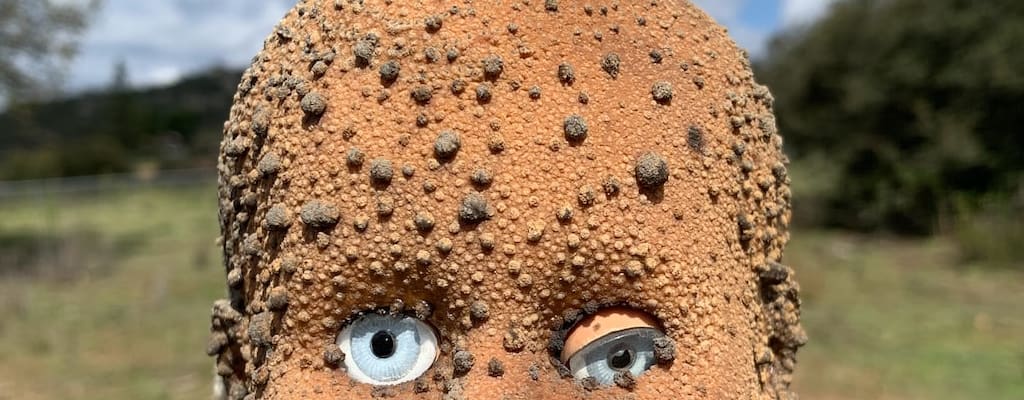dig oneself in a hole: Idiom Meaning and Origin
What does ‘dig oneself in a hole’ mean?
"Dig oneself in a hole" means to get oneself into a difficult or embarrassing situation, usually as a result of one's own actions or words.

Idiom Explorer
The idiom "paint oneself into a corner" means to create a difficult situation for oneself through one's own actions or decisions, leaving no easy way out or alternative solutions.
The idiom "knee-deep in the Big Muddy" means being in a situation where one is heavily involved or committed to something, often a difficult or risky endeavor, and finding it difficult to get out or make progress.
The idiom "in too deep" means being heavily involved or committed to a situation or problem to an extent that it becomes difficult or impossible to escape or resolve it.
The idiom "in the hole" means to be in debt or in a difficult financial situation. It is often used to describe a person or a company that owes money and is struggling to repay it.
The idiom "hunker down" means to get into a stable, secure, or defensive position, both physically and mentally, usually in order to wait out a difficult or dangerous situation.
The idiom "go to ground" means to hide or disappear, especially when being pursued or facing a difficult situation. It can also imply seeking shelter or protection, similar to animals going to their burrows underground.
The idiom "go into one's shell" means to become quiet, reserved, or withdrawn, usually due to feeling shy, embarrassed, or defensive.
The idiom "get stuck in" means to start working on something with enthusiasm and determination, often in a hands-on or proactive manner.
The idiom "get one's hands dirty" means to become involved in or participate in a task that is unpleasant or morally questionable. It implies being willing to do the necessary work, regardless of how it may affect one's reputation or conscience.
The idiom "get stuck into" means to enthusiastically and wholeheartedly start or engage in a task or activity, usually a challenging or difficult one.
Perilous Secrets Unveiled
The idiom "dig oneself in a hole" is a commonly used phrase in the English language that describes a situation where someone has made a mistake or taken a series of actions that has led them into a difficult or awkward predicament.
One interpretation of this idiom suggests that it is similar to "digging one's own grave" - an expression that emphasizes the idea of worsening a situation through one's own actions. By repeatedly making poor decisions, a person can metaphorically dig themselves into a position of disadvantage or trouble.
Another related idiom is "dig out of a hole," which implies the act of finding a way to escape from a difficult situation. When someone has dug themselves into a hole, they may need to dig deep and work hard to dig themselves out and overcome the consequences of their actions.
Additionally, "dig deep" is another related idiom that signifies the need to search within oneself for strength or resources to tackle a challenging situation. When someone has dug themselves in a hole, they often need to dig deep to find the determination and resilience to address the predicament they are facing.
Lastly, "dig in" can also be connected to the idiom "dig oneself in a hole." While "dig in" usually means to start eating or working with enthusiasm or perseverance, in the context of this idiom, it can mean to firmly establish oneself in an undesirable situation. By not acknowledging or addressing their mistakes, individuals can further dig themselves in a hole and make it harder to climb out.
The origins of the idiom "dig oneself in a hole" are not clear-cut, but it likely developed from the literal act of digging a hole and became idiomatic over time. The phrase gained popularity as a way to describe self-inflicted problems or dilemmas, and it is now commonly used in both personal and professional contexts.
When someone finds themselves in a hole, they may experience feelings of embarrassment, frustration, or helplessness. However, it is important to remember that mistakes are a part of life and can provide valuable lessons for personal growth and development.
The idiom "dig oneself in a hole" resonates across a variety of contexts, highlighting the universal nature of self-inflicted challenges or problems. It serves as a reminder that our actions have consequences and emphasizes the importance of critical thinking, foresight, and careful decision-making.
The idiom "dig oneself in a hole" is an expression that describes the act of making mistakes or taking actions that lead to difficult or embarrassing circumstances. By exploring related idioms such as "digging one's own grave," "digging out of a hole," "digging deep," and "digging in," we can gain a deeper understanding of the implications and consequences of our actions. This idiomatic phrase is an integral part of the English language and reflects the complexities and nuances of human experiences.
Example usage
Examples of how the idiom "dig oneself in a hole" can be used in a sentence:
- John couldn't stop lying, and with each lie, he dug himself in a hole deeper and deeper.
- By procrastinating his work until the last minute, Tom was digging himself in a hole of stress and anxiety.
- After getting caught stealing, Mary tried to blame others, but only ended up digging herself in a hole she couldn't escape.
More "Mistake" idioms

